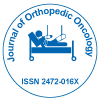Notre groupe organise plus de 3 000 séries de conférences Événements chaque année aux États-Unis, en Europe et en Europe. Asie avec le soutien de 1 000 autres Sociétés scientifiques et publie plus de 700 Open Access Revues qui contiennent plus de 50 000 personnalités éminentes, des scientifiques réputés en tant que membres du comité de rédaction.
Les revues en libre accès gagnent plus de lecteurs et de citations
700 revues et 15 000 000 de lecteurs Chaque revue attire plus de 25 000 lecteurs
Indexé dans
- Google Scholar
- Recherche de référence
- Université Hamdard
- EBSCO AZ
- OCLC-WorldCat
- Publons
- Euro Pub
- ICMJE
Liens utiles
Revues en libre accès
Partager cette page
Abstrait
Autophagy as a Possible Target for Cancer Therapy
Abraham NM, Kirubel MM and Abraham DA
Autophagy is an evolutionarily conserved catabolic process that targets cellular organelles and cytoplasmic constituents to the lysosomes for degradation. According to the type of cargo delivery, there are three main types of autophagy systems in mammals: macroautophagy, microautophagy, and chaperone-mediated autophagy. Macroautophagy, often simply (and hereafter) referred to as autophagy, is the best studied autophagic process and focus of this review. Autophagy has been recognized to be a pro-survival mechanism at times of cellular stress including starvation. Besides, increasing evidence indicated the importance of autophagy in in the pathogenesis of several diseases including cancer. But, its role in cancer is more complex and still controversial; it appears to be tumor suppressive during tumorigenesis, but contributes to tumor cell survival during cancer progression. Besides, autophagic capacity was shown to significantly affect responses of cancer cells to anticancer agents and radiation. Even though there is still a gap about how autophagy is regulated in cancer, it appears to provide a promising target for cancer treatment. This review aimed at examining the multiple roles of autophagy as a novel target for cancer therapy..
Revues par sujet
- Agriculture et Aquaculture
- Biochimie
- Chimie
- Food & Nutrition
- Génétique et biologie moléculaire
- Géologie et sciences de la Terre
- Immunologie et microbiologie
- Ingénierie
- La science des matériaux
- Le physique
- Science générale
- Sciences cliniques
- Sciences environnementales
- Sciences médicales
- Sciences pharmaceutiques
- Sciences sociales et politiques
- Sciences vétérinaires
- Soins infirmiers et soins de santé
Revues cliniques et médicales
- Allaitement
- Anesthésiologie
- Biologie moléculaire
- Cardiologie
- Chirurgie
- Dentisterie
- Dermatologie
- Diabète et endocrinologie
- Gastro-entérologie
- Immunologie
- La génétique
- Maladies infectieuses
- Médecine
- Microbiologie
- Neurologie
- Oncologie
- Ophtalmologie
- Pédiatrie
- Recherche clinique
- Soins de santé
- Toxicologie

 English
English  Spanish
Spanish  Chinese
Chinese  Russian
Russian  German
German  Japanese
Japanese  Portuguese
Portuguese  Hindi
Hindi